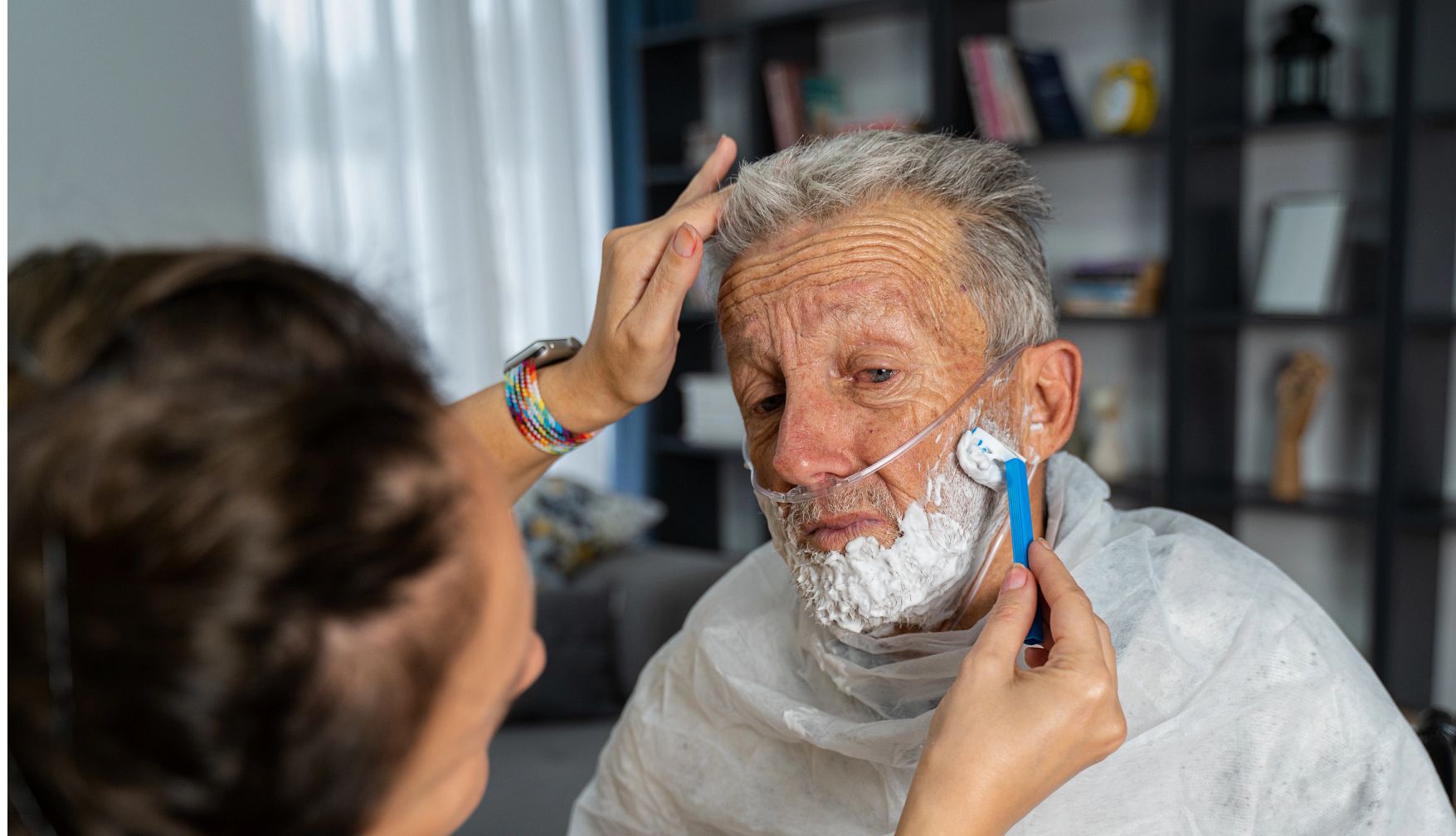AARP Hearing Center


Pamela Toto’s client had a problem: She was able to live alone, with help from her son, but getting in and out of her shower, where she had a chair and a handheld nozzle, was too difficult. So, Toto, an occupational therapist, showed the son how to safely help his mother into her shower chair.
But, Toto says, “they didn’t do it.” She learned why in a talk with the son: “He said, ‘I do everything for my mom, but I just don’t want to see her naked.”
Toto helped the pair find a solution: a wrap-around towel robe the woman already had that she could wear on the way into and out of the shower.
It was a good illustration of the challenges, both practical and emotional, that caregivers and care recipients face when someone needs help with showering, using the toilet or other intimate hygiene tasks.
“It’s hard to ask for help in those areas, and it’s also hard for care partners to give help in those areas,” says Toto, who is a professor of occupational therapy at the University of Pittsburgh.
She and other experts say there are ways to make such tasks easier.
Notice changes and think about causes
For some people, the need for hygiene help arrives suddenly, with a stroke, a fall or another crisis. But many older adults gradually become less adept or attentive to personal care, Toto says.
Not every change is a problem, says Heather Young, a nursing professor and dean emerita at the University of California, Davis. “Having a shower every day or every other day is not a necessity,” she says, especially for many older adults who aren’t working up a sweat.
Also, she says, “Someone who has always been fastidious about their hygiene is very different from someone who’s always sort of neglected it.”
However, if you notice a change, it’s a good time to start a conversation, says AARP family caregiving expert Amy Goyer.
For example, she says, you might say: “I’ve noticed that you aren’t showering as frequently. Is that because you don’t feel safe in the shower? Can we put up some grab bars to make it more comfortable? Is it because it’s cold in there? Because we can put in a heater.”
Join Our Fight to Improve Home Care
Sign up to become an AARP activist for more home and community-based services and other issues important to people 50 and older.
Sometimes, the challenges are greater. Michele Merfeld Hale, 66, of Columbia, Missouri, cared for her husband Larry, 88, who had vascular dementia and often resisted showering.
“The sad thing is, he was one of the most hygienic men I ever knew,” Hale says. It pained her that he no longer wanted to shower.
But Hale learned that her husband is afraid of falling and dislikes water on his head. So, switched to no-rinse shampoo and body wash to make the process quicker and more comfortable.
Try problem-solving products
Simple substitutions, like switching to a no-rinse shampoo, can sometimes make a big difference. Here are a few other products experts recommend.
Leave-in conditioners. Spray conditioners help make combing hair easier, says Young
Toothpaste brands. Some people with dementia find minty toothpaste flavors overwhelming, she says. A fruit-flavored children’s brand may work better.
Toilet adjustments. Try adding a raised seat with rails to the toilet.




































































More From AARP
Top Colorectal Surgeon Shares Insider Secrets for Optimal Health
Why You Should Skip the flushable wipes and colonics, according to a colorectal surgeon
What to Know About Using FMLA to Care for a Family Member
It's important to know all your options, which may include taking leave time under the federal Family and Medical Leave Act. Get more details.
What is Medication Management? A Survival Guide for Caregivers
Stay on top of your loved one's prescription drug doses with the help of these organizational tools